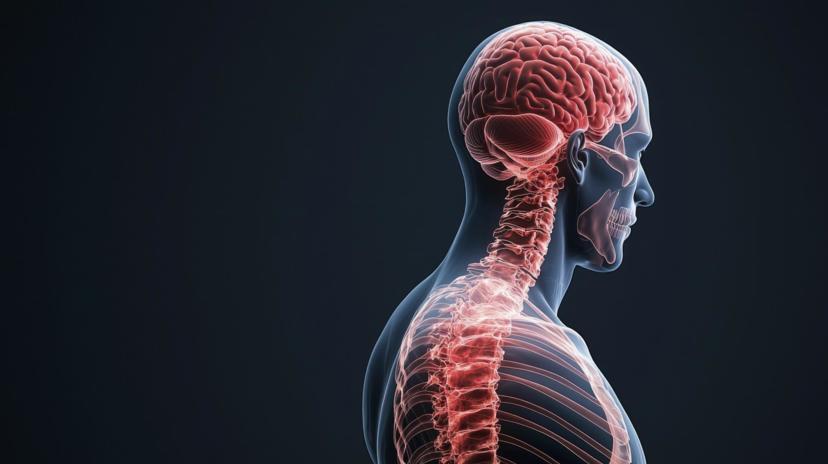ANS Dysfunction and its Link with Mental Health Disorders

spodnica Charloti is a top Concierge Primary Care Doctor in Marble Canyon, Arizona. With a passion for the field and an unwavering commitment to their specialty, spodnica Charloti is an expert in changing the lives of their patients for the better. Through their designated cause and expertise in the field, spodnica... more
Mental health issues can arise due to genetic predispositions or environmental stressors. One of the lesser-known contributors to mental health struggles is dysfunction within the autonomic nervous system (ANS). When the ANS is not functioning properly, it can have profound effects on mental health, which can worsen in people who are already suffering from mental issues.
In this blog, we are going to discuss the association between ANS dysfunction and mental health disorders, as well as how early detection of this dysfunction with tools like the TM Flow machine can lead to better quality of life.
What is the Autonomic Nervous System (ANS)?
ANS is the crucial part of our peripheral nervous system that controls the involuntary actions of our body, which are breathing, heart rate, digestion, and blood pressure. It helps maintain homeostasis so the body remains balanced in case of environmental stress.
The ANS has two branches:
Sympathetic Nervous System (SNS): Often termed the fight or flight system, which activates in stressful conditions and prepares the body by increasing heart rate, expanding airways, and releasing adrenaline.
Parasympathetic Nervous System (PNS): Known as the rest and digest system, it restores energy and calms the body when the stressful condition is over by recovering it to its standard functionality.
Understanding ANS Dysfunction
ANS dysfunction occurs when an imbalance or malfunction occurs in one or both branches of the autonomic nervous system. This dysfunction can be caused by various physical and mental health issues.
Common causes of ANS dysfunction include:
Persistent stress can overstimulate the SNS.
Physical and emotional trauma can disrupt the normal ANS function.
Diabetes or heart issues can result in ANS dysfunction.
Insomnia and lack of any activity can further disrupt the ANS.
The Link Between ANS Dysfunction and Mental Health Disorders
ANS dysfunction can be linked to several mental health disorders. Here is how it affects different conditions
1. Anxiety Disorders
In anxiety disorders, the body’s sympathetic nervous system is often overactive. This leads to alertness and stress, even when there is no danger. The physiological symptoms of anxiety (e.g., increased heart rate, shortness of breath) are caused by this imbalance. Low heart rate variability (HRV) indicates reduced parasympathetic activity that is linked with anxiety.
2. Depression
Depression is associated with an underactive parasympathetic nervous system, which makes it difficult for individuals to recover from stress. As a result, people with depression may feel emotionally drained. Low HRV is also linked to emotional dysregulation, a symptom of depression. This indicates that the body is unable to manage emotional stress effectively, which causes the feeling of hopelessness.
3. PTSD
In PTSD (Post-Traumatic Stress Disorder), the body's response to stress remains elevated even after the traumatic event has ended. The SNS becomes overactive, which can cause hyperarousal, irritability, and difficulty relaxing. Decreased parasympathetic activity means the body struggles to return to a relaxed state. As a result, individuals with PTSD experience persistent symptoms like intrusive memories, flashbacks and sleep disturbances.
4. Panic Disorder
Panic attacks are sudden experiences of intense fear that cause sweating, trembling, shortness of breath, and heart palpitations. These attacks are linked to SNS overactivation, which causes the body to react in extreme ways to stress even when there is no danger. ANS dysfunction in panic disorder is often identified by a low HRV, which suggests poor parasympathetic activity.
In this disorder, individuals show mood swings between depression and mania. During depressive episodes, HRV is low, which means the parasympathetic system is not functioning optimally. This dysfunction causes emotional instability and difficulty managing mood changes. HRV can be a valuable indicator for understanding the severity of bipolar disorder.
How ANS Dysfunction Can Worsen Mental Health
ANS dysfunction can impair the body’s ability to regulate stress. An overactive SNS keeps the body under stress, while a weakened PNS struggles to restore calm. This imbalance causes increased mood swings. Over time, these physiological disruptions can intensify mental health issues, making it harder for people to manage their emotional well-being.
Early Detection of ANS Dysfunction With TM Flow Test
Active management is the most effective way to deal with ANS dysfunction, so it cannot contribute to the progression of mental health disorders. This can be achieved with early detection of this dysfunction before it becomes severe. The TM Flow Test can be considered due to its early detection abilities in the ANS and vascular system.
This test is conducted by the TM Flow system, a noninvasive diagnostic tool that measures different markers to detect various health parameters of the body. One of its markers is HRV, which regulation is directly related to autonomic dysfunction and, somehow, to mental health. An abnormal HRV value indicated by the TM Flow test leads to further ANS testing to identify the root cause of the problem, which can later be treated more strategically.
Addressing ANS Dysfunction for Better Mental Health
Treating ANS dysfunction can lead to improved mental health, and other than proper treatment, you can follow some practical ways to deal with it.
Do regular exercise, eat healthy, and try some stress management techniques
Cognitive Behavioral Therapy is effective for people dealing with anxiety.
Controlled breathing exercises can activate PNS, which lowers the stress level.
Learning biofeedback techniques to control physiological functions can also help.
Conclusion
Any mental disorder is a devastating condition for a person which impedes his ability to live an everyday life. ANS dysfunction is mainly referred to as a separate entity without considering its effects on mental health. However, recent studies have shown how mental disorders can worsen in a person suffering from ANS dysfunction. Treating this condition can relieve a person from mental distress so he can live peacefully.









